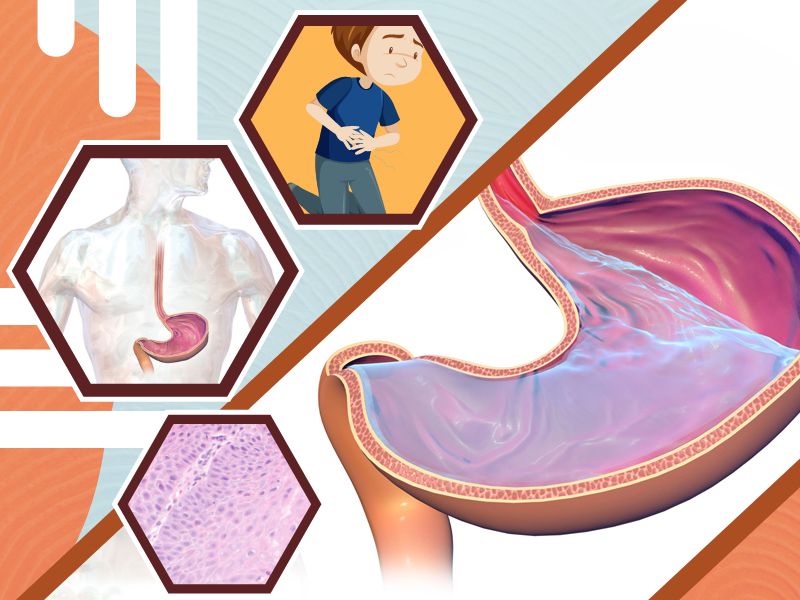Gastroesophageal Reflux Disease (GERD)

Gastroesophageal Reflux Disease (GERD) is an illness that occurs when stomach acid often flows back into the tube that connects your mouth and stomach. Several people experience acid reflux from time to time.
GERD is mild acid reflux that occurs at least twice a week or mild to severe acid reflux that occurs at least once a week. Most people manage this condition with lifestyle changes and non-prescription medicine, but some people may need stronger medicine or surgery to ease the symptoms.
Causes
GERD is caused by frequent acid reflux. A circular band of muscle around the bottom of your esophagus relaxes to allow food and liquid to flow in your stomach. Then the sphincter closes again. This happens when you swallow.
If the sphincter relaxes unusually or weakens, stomach acid flows back up into your esophagus. This continuous backwash of acid irritates the lining of your esophagus which often causes it to become inflamed.
Risk Factors
Your risk may increase of developing GERD if you are:
- Obese
- Pregnant
- Bulging of the top of the stomach up into the diaphragm
- Have connective tissues disorders
- Have delayed stomach emptying
In addition, factors that may aggravate acid reflux may include:
- Drinking certain beverages
- Taking certain medications, such as aspirin
- Eating certain foods such as fatty or fried foods
- Eating large meals or eating late at night
- Smoking
Symptoms
Common signs and symptoms of GERD may include:
- A sensation of a lump in your throat
- Regurgitation of food or sour liquid
- Difficulty swallowing
- Chest pain
- A burning sensation in your chest usually after eating which worsens at night
If you have nighttime acid reflux, you may also experience:
- Disrupted sleep
- New or worsening asthma
- Laryngitis
- Chronic cough
Seek emergency medical assistance right away if you have chest pain especially if you also have arm or jaw pain as well as shortness of breath.
Diagnosis
Your doctor may diagnose GERD based on a physical examination and a history of your signs and symptoms. Your doctor might recommend:
- X-ray of your upper digestive system
- Esophageal manometry
- Ambulatory acid (pH)
- Upper endoscopy
Treatment
It is usually recommended to use over-the-counter medications. If you don’t have relief within a few weeks, your doctor may recommend you prescription medicine or surgery. Over-the-counter medications include:
1. Medications to reduce acid production
- Cimetidine (Tagamet HB)
- Famotidine (Pepcid AC)
- Nizatidine (Axid AR)
2. Antacids that neutralize stomach acid
- Mylanta
- Rolaids
- Tums
3. Medications that block acid production and heal the esophagus
- Lansoprazole (Prevacid 24 HR)
- Omeprazole (Prilosec OTC, Zegerid OTC)



